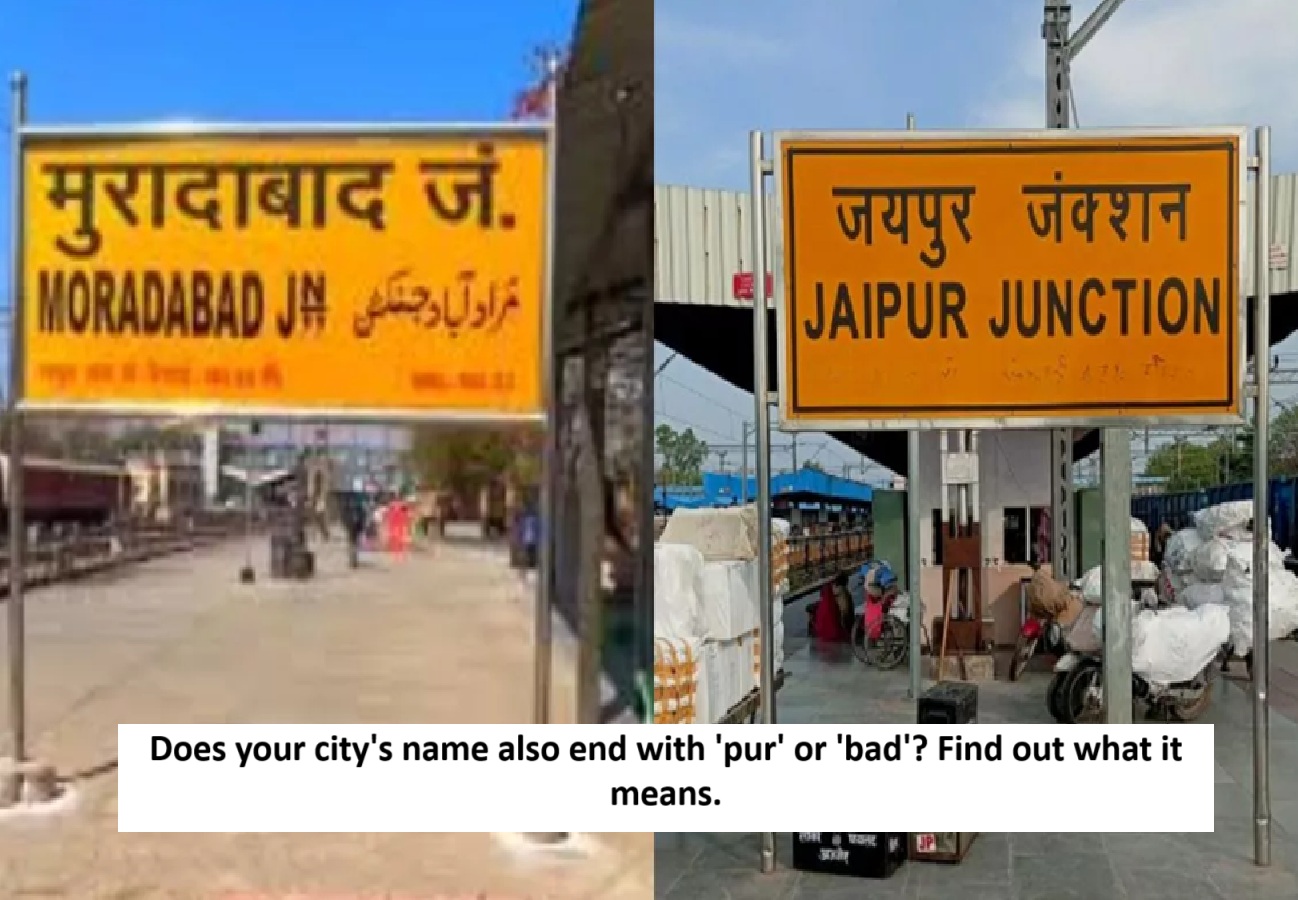
News Topical, Digital Desk : While traveling, you may have often seen city names with the prefix "pur" or "bad," such as Rampur, Kanpur, Jalalabad, and Moradabad. But do you know why cities have the prefix "pur" or "bad"? Let's find out.
The story of 'pur' in city names
Pur means 'city' or 'fort'. This word, derived from the Sanskrit language, was used in ancient times. The word 'pur' has been in use since the Rigveda period; for example, the Mahabharata mentions cities like Hastinapur. Currently, there are many cities in India that have the word 'pur' suffixed to them, such as Jaipur, Udaipur, Nagpur, Kanpur, Rampur, Raipur, Gorakhpur, Shikarpur, and Bilaspur.
It is believed that when kings and emperors founded new cities, they would name them after their own names. For example, King Jai Singh named the city Jaipur by adding the word "pur" after his name.
The story of 'after' in the names of cities
Just as city names end with "pur," many also end with "bad." Examples include Moradabad, Jalalabad, Allahabad, Ahmedabad, Ghaziabad, Firozabad, Shikohabad, Farrukhabad, Nizamabad, and Hyderabad. Cities ending with "bad" also include cities in India, such as Jalalabad in Bangladesh and Islamabad and Abbottabad in Pakistan.
'Baad' is a corruption of the Persian word 'Abad'.
The word "bad" is a corruption of the Persian word "abad." "Aab" in Persian means water. The full word refers to any village, city, or province that is suitable for cultivation or habitation.
It is said that during the Mughal period, when a city or place was named, the name of the ruler was often followed by the word "abad." This not only imprinted the Mughal Empire on the place but also served to give the city's people an identity.
--Advertisement--

 Share
Share



